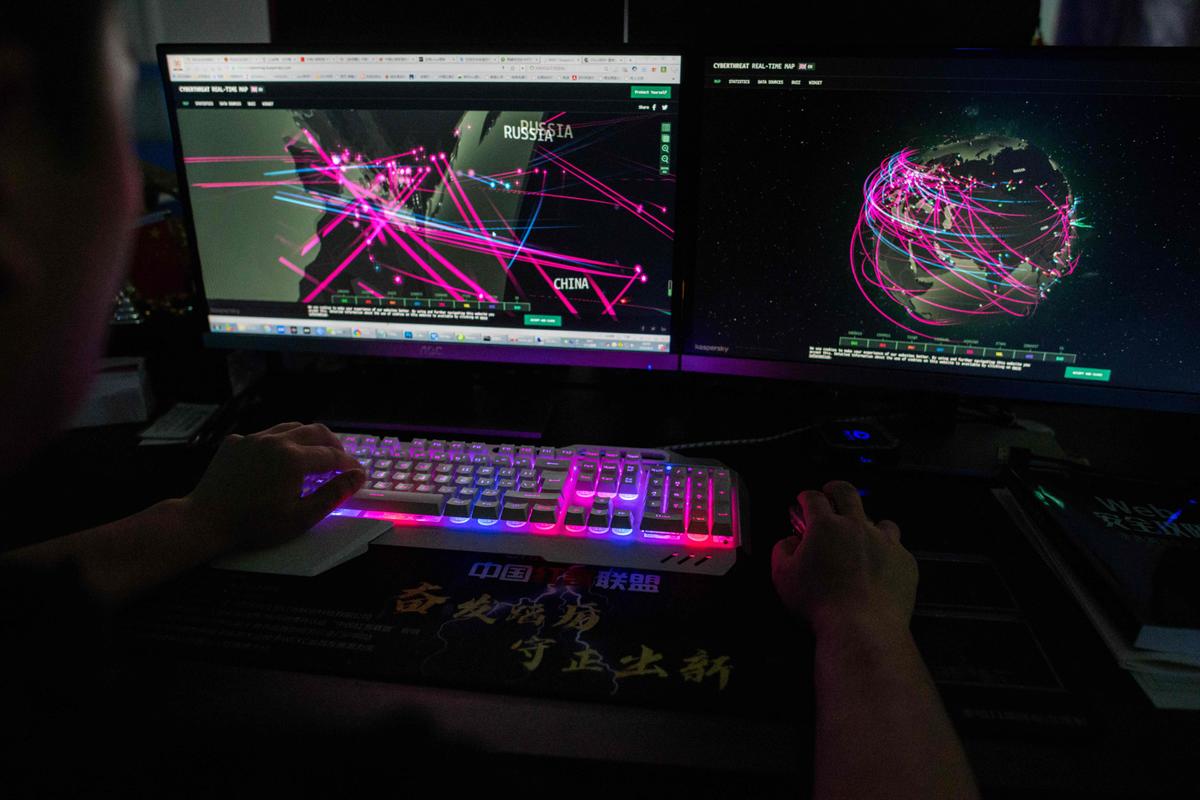
A recent rash of Chinese cyber attacks against the nation’s ports and utilities highlights a growing security threat facing the United States as tensions over Taiwan continue to escalate.
According to U.S. officials and industry security officials cited by the report, the PLA appears to be testing its ability to disrupt key American infrastructure in the event of a U.S.–China conflict in the Pacific.
'Cyber-Pearl Harbor Kind of Attack'
Rex Lee, a cybersecurity adviser at My Smart Privacy, told The Epoch Times that the national security threat to the homeland posed by the Chinese military needs to be taken seriously.“A lot of what we are seeing right now are precursor attacks that are testing the security levels of critical infrastructure,” said Mr. Lee. “And that we are starting to see more and more of these generic attacks on infrastructure should alarm everyone.
“In a sense, if we aren’t careful, we could be looking at a cyber-Pearl Harbor kind of attack.”
“We’ve now reached the point where the FBI is opening a new China-related counterintelligence case about every 10 hours,” said Mr. Wray. “In our modern world, there is perhaps no more ominous prospect than a hostile foreign government’s ability to compromise our country’s infrastructure and devices.”
For years, ransomware attacks—when a piece of malicious software paralyzes a computer or entire system until a sum demanded by hackers is paid—have plagued U.S. public institutions and businesses.
'Extremely Urgent'
Rep. Nancy Mace (R-S.C.) has identified the threat as “extremely urgent” in introducing legislation that would remove hurdles for qualified cybersecurity professionals to be able to fill posts needed to protect large institutions.“We’ve got a shortage across the country of 700,000 cyber security professionals with job vacancies shooting across the public and private sector. We need all hands on deck to fill the gap.
“The government can't be turning away people with much-needed cyber skills just because they don't have a four-year degree,” added Ms. Mace.
While more cyber security officials are needed, real reform needs to come from the big tech companies who often work in tandem with China at the expense of American security, according to Mr. Lee.
“It's the operating systems that support our technology that are being compromised, and since virtually all of our infrastructure is developed in China, they know all the backdoors,” said Mr. Lee. “Anything connected to the internet is vulnerable in this tech-based hybrid warfare, and that means everyone connected to the internet is fair game.
“However, it is what is not in the news, what they [are] holding back on, and that I am most concerned about,” he added.


No comments:
Post a Comment